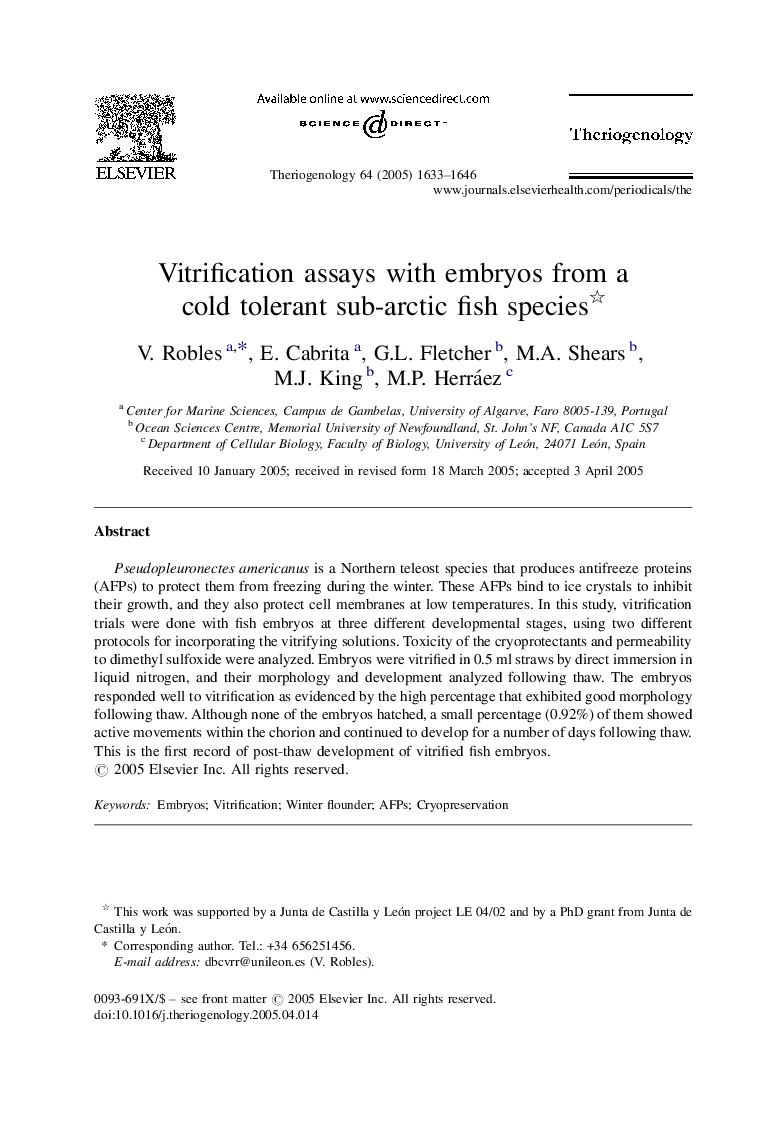| Article ID | Journal | Published Year | Pages | File Type |
|---|---|---|---|---|
| 10893892 | Theriogenology | 2005 | 14 Pages |
Abstract
Pseudopleuronectes americanus is a Northern teleost species that produces antifreeze proteins (AFPs) to protect them from freezing during the winter. These AFPs bind to ice crystals to inhibit their growth, and they also protect cell membranes at low temperatures. In this study, vitrification trials were done with fish embryos at three different developmental stages, using two different protocols for incorporating the vitrifying solutions. Toxicity of the cryoprotectants and permeability to dimethyl sulfoxide were analyzed. Embryos were vitrified in 0.5Â ml straws by direct immersion in liquid nitrogen, and their morphology and development analyzed following thaw. The embryos responded well to vitrification as evidenced by the high percentage that exhibited good morphology following thaw. Although none of the embryos hatched, a small percentage (0.92%) of them showed active movements within the chorion and continued to develop for a number of days following thaw. This is the first record of post-thaw development of vitrified fish embryos.
Related Topics
Life Sciences
Agricultural and Biological Sciences
Animal Science and Zoology
Authors
V. Robles, E. Cabrita, G.L. Fletcher, M.A. Shears, M.J. King, M.P. Herráez,
